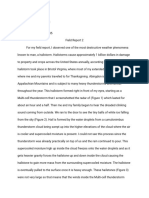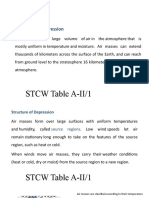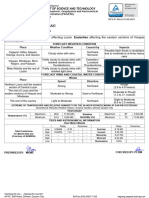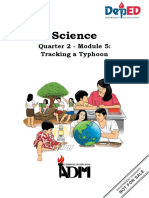0% found this document useful (0 votes)
13 views8 pagesThe AI Revolution Unprecedented Progress
The document discusses the rapid advancements in Artificial Intelligence, highlighting the transformative impact of generative and multimodal AI across various industries. It emphasizes the need for ethical considerations and regulatory frameworks as AI continues to evolve, with projections indicating significant market growth. Key trends such as autonomous AI agents, Edge AI, and Quantum AI are also explored, showcasing the future potential and challenges of AI technology.
Uploaded by
Aryan YadavCopyright
© © All Rights Reserved
We take content rights seriously. If you suspect this is your content, claim it here.
Available Formats
Download as PPTX, PDF, TXT or read online on Scribd
0% found this document useful (0 votes)
13 views8 pagesThe AI Revolution Unprecedented Progress
The document discusses the rapid advancements in Artificial Intelligence, highlighting the transformative impact of generative and multimodal AI across various industries. It emphasizes the need for ethical considerations and regulatory frameworks as AI continues to evolve, with projections indicating significant market growth. Key trends such as autonomous AI agents, Edge AI, and Quantum AI are also explored, showcasing the future potential and challenges of AI technology.
Uploaded by
Aryan YadavCopyright
© © All Rights Reserved
We take content rights seriously. If you suspect this is your content, claim it here.
Available Formats
Download as PPTX, PDF, TXT or read online on Scribd
/ 8




















































































































